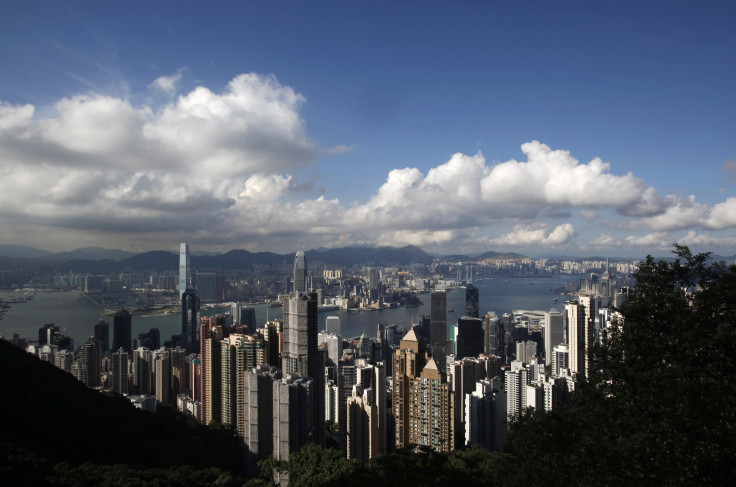Hong Kong Protests Flare After Rioting Charges, Metro Services Disrupted

More demonstrations erupted in Hong Kong on Tuesday after 40 to 50 people were arrested on riot charges for Sunday’s protests.
Reports said an officer pointed a firearm at the protesters but did not indicate if the gun was loaded, a new level of escalation in the confrontation between the police and protesters that has been going on for weeks. The protesters also disrupted the Mass Transit Railway (MTR) trains by standing between platform doors that prevented the trains from moving.
MTR countered the protesters by dispatching minibuses to move the passengers and normal service was soon restored. MTR was brought into the fray on July 21 when a gang of men dressed in white shirts, possibly Chinese organized crime gangs called Triads, attacked protesters at the Yuen Long MTR station as they were returning home after a day of demonstrations. The incident injured 45 people
One protester told the Guardian that he wanted MTR to explain their passive response to the attacks, saying, “How could they let the Triads in white attack people on the platform randomly, including the elderly and children in the train? Some of the elderly got smacked on their heads, but [MTR staff] turned a blind eye to it.”
Another protester said that the MTR disruption was to remind people of the various injustices and the government’s failure to deal with them. That protester, 26-year-old Lorraine Lee, said, “The government has not been addressing the problems in our society. That is why now Hong Kongers have no choice but to use different ‘creative’ approaches to remind people what is happening in Hong Kong.”
The protests began several weeks ago over a controversial extradition bill that would make the extradition process easier for Chinese authorities to take suspects back to China. The unusual “one country, two systems” government lacks any formal extradition agreement between Hong Kong and China. Proponents of the bill claim that the current system allows criminals to remain in Hong Kong facing greatly reduced charges or possibly remain free.
The protesters demands have increased to include not only the withdrawal of the bill, but that no charges be brought against the rioters. Thus, the arrests from Sunday’s riots have certainly stoked the fires of the unrest.
It was also reported that the United States was keeping an eye on what appears to be a buildup of Chinese forces on Hong Kong’s border. The information was from a senior level Trump administration official, according to the Guardian report. One of the biggest concerns in Hong Kong is that the Chinese government will, as a last resort, deploy soldiers from the People’s Liberation Army (PLA) to stop the protesters.
© Copyright IBTimes 2024. All rights reserved.





















